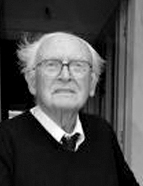

Maintaining some characteristics of a certain historiography of dissemination, especially in its narrative and moralising components, HL's study simultaneously represented a significant advance in relation to the work of synthesis and collection that characterised traditional historiography on Portugal— while not dispensing with useful systematisation, it also ended up juxtaposing it with original research, based no longer on the analysis of secondary sources but essentially on direct contact with Portuguese documentation. Also preceded by names such as Henry Morse Stephens (1857-1919) and Aubrey Bell (1881-1950) and accompanied by historians such as John Brande Trend (1887-1958), William Atkinson (1902-1992), and Charles Boxer (1904-2000), HL consolidated in his work an improvement from the sequential perspective of Portuguese history, structured on a long chronological stage and no longer analysing specific and conjunctural matters, maintaining a traditional and simple division by reigns and regimes. This methodology was justified by the fact that it symbolised the transmission of authority and the constant renewal of society in the succession of generations. In any case, HL also recognised that there was a drawback to this procedure in that compartmentalisation could be understood as closed, when in fact this succession of periods does not end repeatedly with the death of the king or the election of the statesman. The author did not regard the limits of these moments as endings but as an accumulation of principles open (or not) to cultural and political change. The new 1966 edition— A New History of Portugal (reissued in 1973 under the title Portugal )— turned out to be a shorter version, in which the 19th and 20th centuries were far more developed. This preference for the 18th and 19th centuries came from the fact that these were less studied periods of English historiography. In the 1966 work, the formation of Portugal was defined as a cumulative process of specificities progressively internalised and stimulated, especially after political autonomy was achieved. According to the historian, the Portugal of King Afonso Henriques "was not a mere restoration of Roman Lusitania and […] his assumption was an act of political inauguration" ( A New History , p. 10). This inaugural character of the political action of the first king of Portugal was juxtaposed, according to HL, with the long existence of the Portuguese people, whose culture preceded this political milestone, in a journey that developed from the Territorium Portucalense to the consolidation of the kingdom. As far as conceptualisation is concerned, HL made a significant contribution— within British historiography on Portugal— to increasing objectivity by consolidating the use of the words Portugal, power, authority, and society instead of concepts such as nation, progress, decadence, and race, which were frequently applied in previous decades.
This work is financed by national funds through FCT - Foundation for Science and Technology, I.P, in the scope of the projects UIDB/04311/2020 and UIDP/04311/2020.
